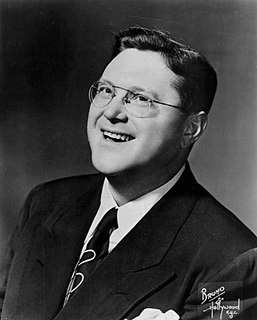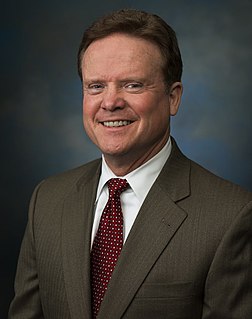A Quote by Peter Agre
To my knowledge, there's never been a scientist in the U.S. Senate.
Related Quotes
The scientist is not much given to talking of the riddle of the universe. "Riddle" is not a scientific term. The conception of a riddle is "something which can he solved." And hence the scientist does not use that popular phrase. We don't know the why of anything. On that matter we are no further advanced than was the cavedweller. The scientist is contented if he can contribute something toward the knowledge of what is and how it is.
Bob Torricelli, Democrat member of the Senate, was basically about to be thrown out of office on corruption charges, and he went to the floor of the Senate to deny everything. And we juxtaposed his denials with an attorney from someone in an action against Torricelli who was listing all of the gifts and all the bribes that Torricelli had been given and offered in exchange for policy considerations on the Senate floor. So he's on the Senate floor denying it.
You now have six-year campaigns for the Senate - you never stop running. It's not uncommon for a member of the Senate to have a fundraising breakfast, a fundraising lunch and a fundraising dinner, and then when the Senate breaks for the week to go home, more fundraisers. And that's driven by the cost of campaigning.
Religion is still parasitic in the interstices of our knowledge which have not yet been filled. Like bed-bugs in the cracks of walls and furniture, miracles lurk in the lacunae of science. The scientist plasters up these cracks in our knowledge; the more militant Rationalist swats the bugs in the open. Both have their proper sphere and they should realize that they are allies.
[Thomas Henry] Huxley, I believe, was the greatest Englishman of the Nineteenth Century—perhaps the greatest Englishman of all time. When one thinks of him, one thinks inevitably of such men as Goethe and Aristotle. For in him there was that rich, incomparable blend of intelligence and character, of colossal knowledge and high adventurousness, of instinctive honesty and indomitable courage which appears in mankind only once in a blue moon. There have been far greater scientists, even in England, but there has never been a scientist who was a greater man.
I think that's something a scientist can do because a scientist works at a border, at the edge of science, at the edge of knowledge, and so there's a lot of fun of reaching out and thinking about things that other people didn't think about. And so it has a kind of exploratory notion, kind of adventurous part in it.




































